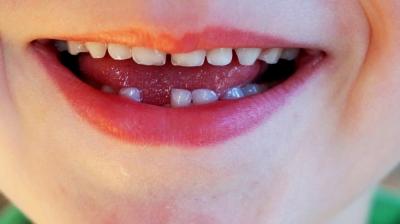From diet to lifestyle and further delving into the cause of death, teeth have played a pivotal role amongst archaeologists to reveal information about ancient civilisations. As reported by the Daily Mail, a research suggests that teeth can tell us a lot about the future as well. Scientists have found that teeth can predict the risk of mental health disorder like depression, anxiety, bipolar disorder, and schizophrenia.
Dr Erin Dunn, a psychiatrist at Massachusetts General Hospital, scrutinised the lost milk teeth of six-year-olds and found out that those with thinner enamel might develop attention deficiency issues. While this discovery maybe logical to the archaeologists, it is unprecedented in psychiatry, as it offers an entirely new perspective to screen mental disorders that is on the rise.
‘It’s something we had never seen or thought of before,’ Dr Dunn told DailyMail.com. The study was presented at the American Association for the Advancement of Science in Washington, for which Dr Dunn formed a team with archaeologist, anthropologists and public health practitioners.
They asked 37 parents in California, whose children were aged six to donate their teeth when they fell off. High resolution imaging was used to analyse each tooth. The analysis was later used to further study the behaviour of the kids. The differences in dimension and teeth quality were found to be better predictors of mental health as compared to the factors that a psychiatrist would normally look for.
For Dr Dunn, the study showed the benefit of and need for scientists to work across fields. “I think that in general scientists can be siloed. People tend to only work with people that have backgrounds that are like theirs. Psychiatrists work with psychiatrists, psychologists work with psychologists. Even though there has been an effort for people to move across disciplines not many do that.”
“This [study] is an artefact for the need for more interdisciplinary science and how efforts can provide opportunities to look at things that are completely unexpected that other fields might do all the time.”








